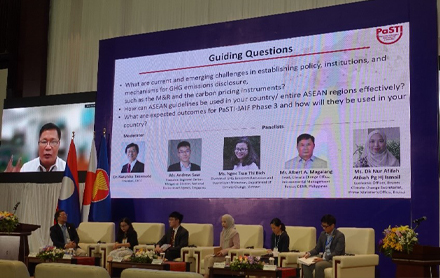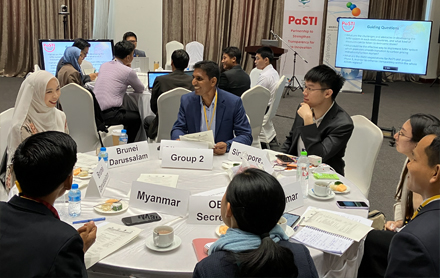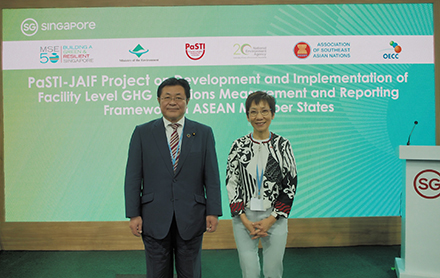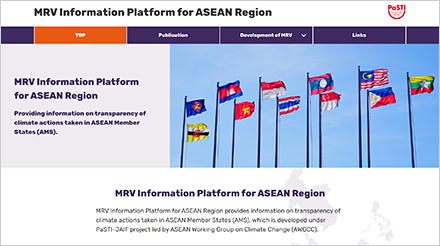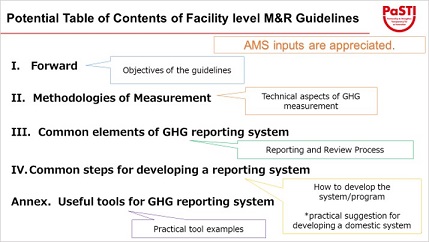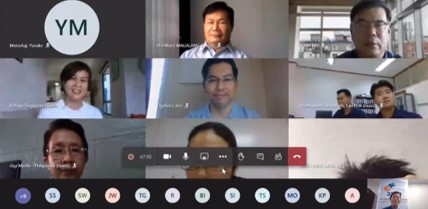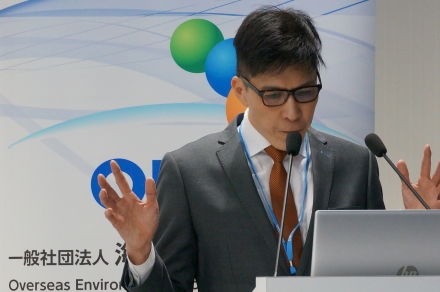Final Workshop of the PaSTI-JAIF Phase 3 was successfully held
Tokyo, Japan / 1–2 July 2025
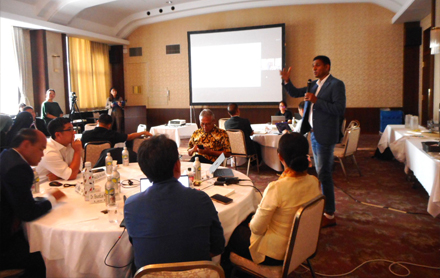
Discussion Session
The final workshop for the PaSTI-JAIF Phase 3 project (2019–2025), which aims to promote transparency in the ASEAN region, was held in Tokyo on July 1 and 2, 2025. The workshop aimed to share the project’s outcomes and lessons learned, as well as to discuss challenges and next steps toward achieving “Harmonized Transparency” beyond 2030. Approximately 40 participants attended the event, both on-site and online, including representatives from the environment and related ministries of ASEAN Member States (AMS), the financial sector, and international organizations.
Day 1: Sharing Country-Level Achievements and Discussion on Harmonized Transparency
Three sessions were held on day 1: (1) Sharing the results from each ASEAN country, (2) Lectures by experts and (3) Discussions.
In session 1, participants shared the progress and results of pilot activities conducted in diverse sectors including waste, industrial processes, and agriculture. Updates were also given to the introduction of GHG emission calculation tools, development of legal frameworks, and collaboration with businesses and local governments. Participants showed strong interest in learning about institutional developments and challenges faced in neighboring countries, leading to an extended and lively Q&A session.
In session 2, Capacity-Building Initiative for Transparency (CBIT), which supports transparency efforts under the Paris Agreement (e.g., GHG inventory preparation) shared knowledge on harmonizing national inventories and corporate-level GHG reporting. Next presentation was given by Mitsubishi Research Institute about the overview of the system for the calculation and disclosure of GHG Emissions (SHK) and the operation of the electric reporting system on the Energy Efficiency and Conservation Act, Global Warming Countermeasures Act, and Fluorocarbon Emissions Control Act’s (EEGS). The Asian Development Bank Institute (ADBI) presented the latest trends in climate-related disclosure and incentives in Asia.
In session 3, the discussion centered on the theme of “harmonized transparency involving the private sector”, where participants actively exchanged opinions. The session highlighted challenges to achieving a regionally harmonized transparency framework and reaffirmed the shared commitment to continue advancing transparency across the region.
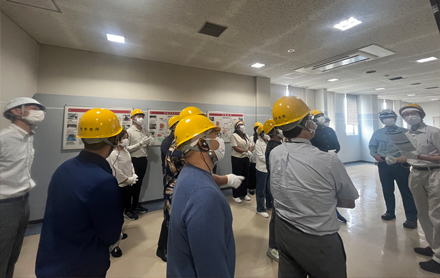
Site-Visit to Kureha Ecology Management Co., Ltd.
Day 2: Site Visits - Learning on Carbon Credits and Supply Chain Management
The site visit focused on emission reduction technologies following GHG calculation and reporting. Participants visited Kureha Ecology Management Co., Ltd. – Wes Tec Kanagawa (a waste-to-energy facility), where they observed the entire process from collection and sorting of industrial waste to power generation.
Reflecting the growing role of cities in decarbonization across ASEAN, the workshop also provided an opportunity to learn from Kawasaki Eco-Town about public–private partnership projects for decarbonization.
Regarding carbon credits and supply chain management, various initiatives from Japan and other parts of Asia were introduced. These topics continued to generate a high level of interest and numerous questions from participants.
While PaSTI-JAIF Phase 3 is scheduled to conclude in July 2025, the workshop repeatedly underscored that many challenges remain such as supporting the development of country-specific systems and promoting “harmonized transparency” at the regional level in connection with GHG data disclosure in environmental finance. PaSTI remains committed to supporting enhanced transparency in the region even after the conclusion of this phase.




